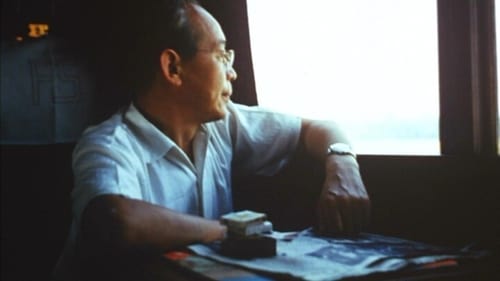
Kenji Mizoguchi: The Life of a Film Director (Aru eiga-kantoku no shogai) is a 1975 Japanese documentary film on the life and works of director Kenji Mizoguchi, directed by Kaneto Shindo (Onibaba). It runs 150 minutes and can be found on the second disc of the Region 1 Criterion Collection release of Ugetsu (1953).

President Oike
International thief Zivaco, who can assume any identity, eludes the authorities and battles rival thief WCWC for a rare gold samurai sword.
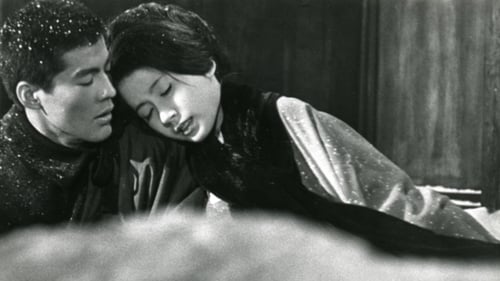
Suzuko, a woman in her twenties who has a brother with political problems (due to communist reprisals), lives for over five years in a love affair with Tate who's a young lieutenant in the Army, ultimately becoming a right-wing fundamentalist revolutionary. She marries another man, one totally dedicated to the rigorous practices of Noh theatre, in an arranged marriage, but the bond that connects her with Tate is too strong.
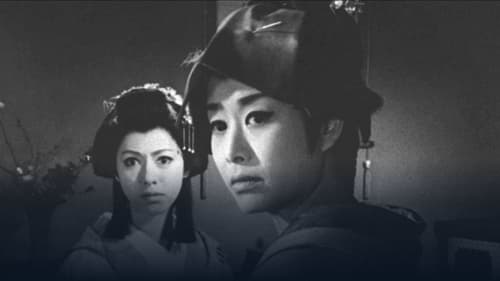
Sir Doi
Framed by his enemies, Manbe finds himself imprisoned for a murder he didn’t commit. His only hope lies with his daughter Yuki who takes it upon herself to clear his name.

Banjun organizes a group of con men to fleece the greedy and rich.

This tragic drama shows a young man fettered by Bushido, the way of the Samurai, who tried to escape the chains of his position, but was being forced to die. When the Tokugawa Shogunate ruled the land, Tatsuno castle in Wakisaka Clan's home of Harima held an established custom, the inspection of the arms warehouse. The Government Inspector Okuno Magodayu found a slight bit of dirt on the point of a spear and mentioned it with disdain. Ezaki Shinpachi heard it and started an argument with him. Magodayu then sent a a letter of challenge to him because he felt insulted by a low-ranking underling without a title. As it turned out Magodayu was killed. Since then, Shinpachi and the Okuno family have had continuous revenge duels. The tension mounts as this story builds to an extremely violent climax, when blood must pay for blood if the clan is to survive!

Chiyomatsu
Set in the pleasure district of Kyoto, Tamiko (Yoshiko Mita, in her first lead role) is a young girl attending high school by day and training as a geisha at night She sees her future as an entertainer, not a prostitute, & she expects a happy marriage with a medical student, Yasuke (Katsuo Nakamura), a sweet fellow she deeply loves. but things started to getting worse for Tamiko and she's forced to become the mistress of the disgusting Tsukada (Seiji Miyaguchi).

The third part of the story about feudal boss Jirocho and his underlings.
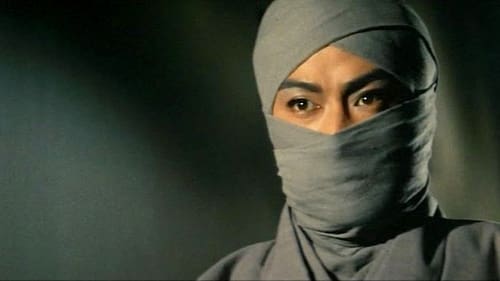
A suspenseful Ninja fantasy based on Shiba Ryotaro's novel, woven with the mysterious fate and romance of Shinzo and a beautiful Princess who find themselves at the center of an intrigue surrounding the legendary land of Yasurai in the mountains of Kumano. Hidden gold, the love of a beautiful Princess, and the approaching evil sword all contribute in bringing you a Ninja action thriller that only the legendary actor Okawa Hashizo and the genius director Kato Tai could produce!

Jirocho and his henchmen befriend Ishimatsu, a wanderer in Mishima.

With her family suffering from extreme poverty, Yuko, as the eldest daughter, is sold to a successful brothel in Kyoto. There she is assigned to serve Takamatsu, one of the brothel’s top customers. But while Takamatsu falls madly in love with Yuko, she finds herself attracted to a young priest named Kunugida. Torn by jealousy, Takamatsu hatches an evil plan to tear them apart.

The tale of real-life Yakuza boss Shimizu Jirocho is told from his earliest beginnings as a gambler on the road as he forms his gang and sets out on the path to fame and fortune. One of the smartest and strongest of all the gang bosses, he went on to survive the end of the samurai era and become a successful businessman. But first, he must survive against all odds in order to build his reputation and develop his strength. Powerful portrayals of the group are led by the great Tsuruta Koji with help from the likes of Matsukata Hiroki.
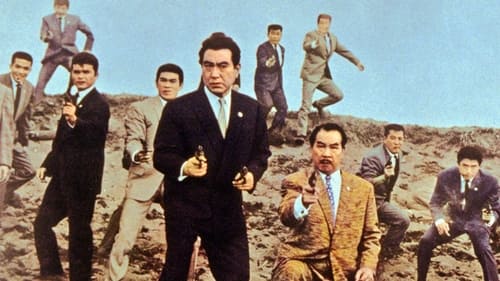
Horibe
A modern gang version of Chushingura, chronicling almost scene for scene the Brave 47 Ronin story, transposed from the Genroku Period to the Showa Era.

A laid-back man tries to become a member of the yakuza.

Keishiro Murakami
Ryutaro Otomo as the Edo magistrate Umon Kondo is out to solve a crime that centers around the murder of a jail guard & the escape of a criminal who is later himself killed. His dying words in Umon's arms were, "I didn't kill the guard." The murdered criminal had been a safe-cracker & only his girlfriend knows where he hid a fortune. She is kidnapped, so the plot gets thicker & thicker.
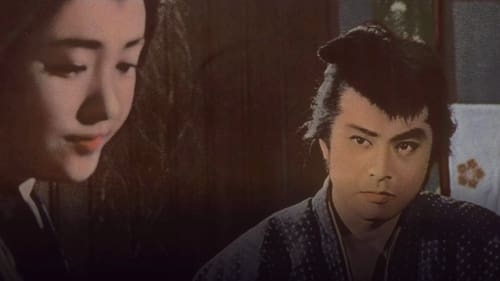
The great Okawa Hashizo, in one of his most powerful roles risks his life and limb to help save the lovely Onaka from a terrible lifestyle. Starting out as a down on his luck gambler, Hantaro refuses to accept punishment for running up a 10 ryo debt in a crooked dice game. Forced from his village he must go on the run and learn how to fend for himself. After 3 years on the road, his past finally catches up to him, when he gets spotted by a pair of gang members. The action heats up after he saves Onaka from committing suicide and the two find themselves battling all odds for survival. This is a serious film with a strong story and exciting sword action!

The sexual experiences of the passionate Sakiko, from her fling with her boss in her first job to her ending up as a prostitute.

Kichizaburo, a samurai keeping peace in Edo, helps a young geisha Kozome avenge her father’s death.
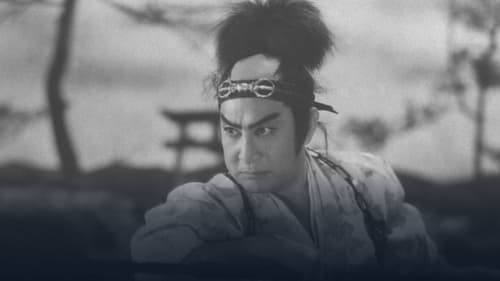
A story about a spear master’s spiritual and martial discipline.

Kimie, a traveling guitarist, performs at various inns at help out her sickly mother. One night while out with her mother, Otoshi, Kimie unexpectedly sees her father, who had abandoned the family 20 years ago. Her hopes for a happy reunion are quickly dashed as her father, having married into a wealthy family, wants nothing to do with her. Will Kimie be able to regain her father’s love?

A man challenges a territorial fight between gangs.

Umon goes on an investigation to unveil the murderer known as Red Lizard.

Bunkichi disguises himself as a yakuza to solve a mysterious death.

Hikozo Okubo
As descendent of famed fishmonger Isshin Tasuke, young feisty Ishii Tasuke uses his talent to flourish his employer’s food business.

Friendship between an ambitious young thief and an artist during the Warring States period.

Kohei Mito
Mr. Mito, a former president of an instant food company, with two young men’s help, solves the quality problems and wins a big ramen contract with a large Chinese company.
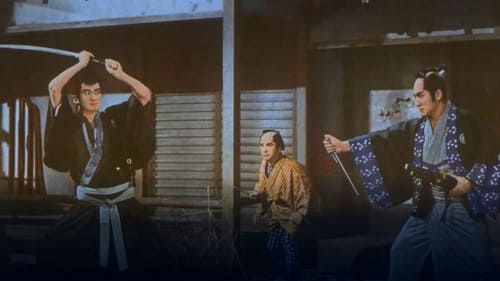
A kabuki actor is assassinated during a New Year celebration show, in front of everyone, fortunately the great detective Umon is among the audience. Along with his quirky assistant they set on the trail of revenge killing. Revenge for what? Who and where is the killer? And what does a treasure and swastika spider tattoos have to do with the case?

1962 Japanese movie
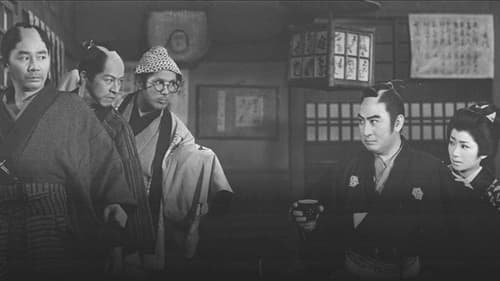
Sugimoto Gonkuro is travelling along from Tosa to Edo. On his journey he will meet both good and bad people.

Young lord Saburo Nobuyasu struggles to find comfort in life. His arranged marriage to Tokuhime, daughter of one-time family enemy Oda Nobunaga, provides little happiness. His manipulative mother adds further complications through her constant interference and attempts at defeating the Nobunaga family.

Chojiro Shimizu
A story about the nature of office workers today.

Chojiro Shimizu
Japanese comedy film.

Detective Umon’s services are called upon when ronin Yaichiro is killed with a peculiar weapon, a stone wrapped in a towel.

Chojiro Shimizu
Japanese comedy film.

Magistrate Kinshiro fights with a group of villains plotting the assassination of the Shogun in Edo.

Toei’s 10th anniversary film, featuring an all-star cast from the golden movie era of the 1960s. A famous story of the 47 loyal samurai. When Lord Asano is unjustly executed, his loyal retainers strike back for revenge.

During the middle of the Kanei Period (1624-1644) Japan was in the early stages of its most peaceful era. This left a large number of unemployed samurai with nothing to do, and their morale suffered. In order to raise their spirits, the Shogun's Chief Advisor suggests that they hold a "Festival of Swordsmen" in the Shogun's presence. Problems arise when some of the martial artists bring their personal grudges to the competition. When Busshi Shirogoro (OTOMO) meets the daughter of the late Lord SANADA Yukimura sparks fly as she tries to use the competition to carry out her vengeance against Shogun Iemitsu.

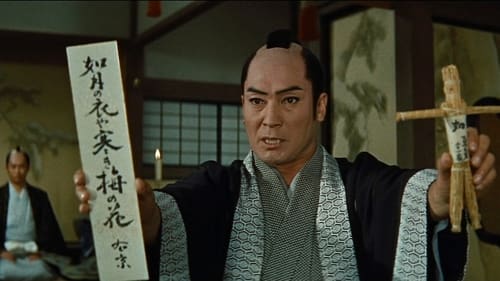
The serial killing of a samurai each night by strangulation at various temples confounds investigators and brings a chill to the residents of Edo. With the capital on edge, master crimefighter Kondo Umon is brought in to try and solve the case. His illustrious career aside, Umon must risk his own life, time and time again in order to bring the culprit to justice. This mystery will keep you guessing until the exciting climax. Umon has a flair for the dramatic and will hopefully solve the case before more innocent victims have their lives claimed!

Fishmonger Tasuke and Shogun Iemitsu swap their identities in pretence for the protection of Iemitsu.

A stage director who directs a “Mori no Ishimatsu” play time travels and becomes “Mori no Ishimatsu” himself.
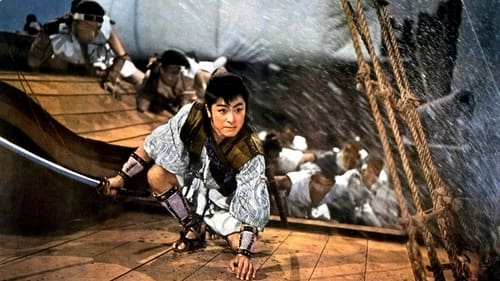
Finding more freedom on the high seas than in war-torn Japan, the 'Bahansen' (Pirate ships) based on the Seto Inland Sea during the Warring Period (Sengoku-jidai)sailed to China, Korea, Luzon, and Siam under the Hachiman banner. A battle for supremacy of the seas begins when a strange old shipwreck survivor is brought to Sakai where he divulges a secret that can change the course of history.One of the most literate and well-written films from Toei, this is an exciting tale of swashbuckling samurai on the high seas!

Popular geisha Koharu suspects that Yusaku, a handsome stranger she falls in love with, is involved in a robbery of precious diamond.

One of Japan's most enduring stories is the true-life yakuza boss Jirocho of Shimizu and his gang as they took over the Tokaido Highroad and went on to everlasting fame. Many of the gang members have become household names although their backgrounds and how they came to join the group are mostly lost in the mists of a time gone by. This is the tale of Masa, who arrived in Shimizu Port hungry and down on his luck. His adventures contain some light-hearted moments as he meets up with the other gang members and goes on to join the group and become one of their best swordsmen. A truly exciting tale starring the ever-popular Okawa Hashizo along with all-time great Okochi Denjiro.

Yamaji Saemon
Taisuke is kind-hearted but overall lacks ambition. Taizo is smarter, but given to fits of emotion and impulsive violence. The samurai brothers fight against corruption in a castle.
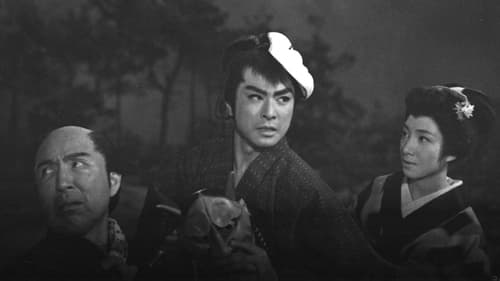
A kindhearted wandering gambler named Hajiro gets involved in a crisis of a village as he passes through and decides to lend a sword in hopes to rescue them.

Shuhei Hoshimura
Detective Tarao investigates the deaths of police officers who were involved in solving a kidnapping case.

Sarako Jubei
Kinnosuke of Toyama sets out on a private mission to clear his father’s name for a crime he did not commit.
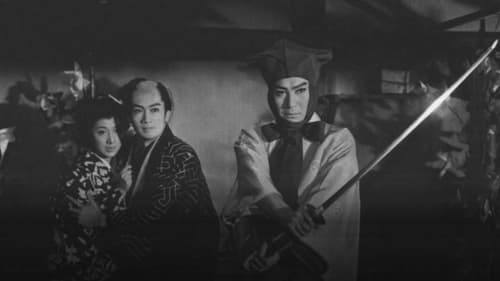
Umon’s services are called upon when innocent bystanders, Kayo and Minokichi, along with the ronin, Gontaro are mistakenly identified as suspects in several recent murder cases. To prove their innocence and uncover the truth, Umon launches his own investigation.

Tsunokichi and Ken face off against a rival yakuza in Kyushu.

While on the road, famed Yakuza Boss Jirocho is falsely accused of starting a peasant's uprising and chased by the law. Meanwhile, one of his henchmen in an attempt to raise money for the Boss gambles away not only all their funds, but their clothing as well. Jirocho, famed for his honesty and integrity must take on the challenge of rival gangs while trying to elude the government's officials at the same time. Things really heat up when the most famous of all Yakuza Bosses, Chuji of Kunisada gets involved. Will he team up with his old friend or is gang warfare about to erupt?
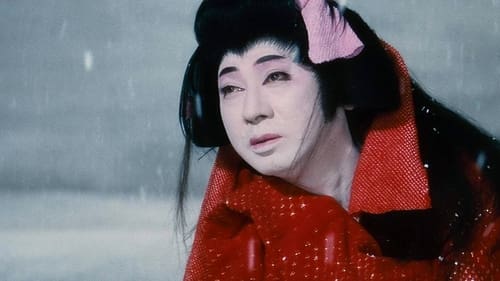
Nakamura Yukinojo gains popularity in Edo's kabuki scene as a handsome onnagata (a male actor who plays female roles). But hidden behind the placid expression of his stage face is a deep grudge for the men responsible for dishonoring his parents' names and leading them to suicide when he was still a child. When he discovers that the mastermind behind those crimes has come to see him act onstage, he begins in earnest to plot his revenge. With the help of a renowned Robin Hood-like thief named Yamitaro, he makes out his first target: the daughter of the man who orchestrated his parents' demise.
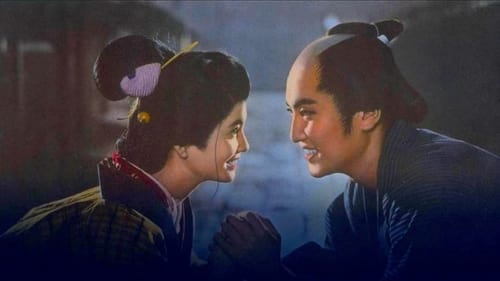
In the third entry into this mega-hit series, Isshin Tasuke, a spirited fishmonger in Edo who looks just like Shogun Iemitsu undergoes a series of unforeseen troubles in his newly wedded life.

Oda Nobunaga (1534–1582) was a major daimyo during the Warring State period of Japanese history. He was the second son of Oda Nobuhide, a deputy military governor with land holdings in Owari province. Nobunaga lived a life of continuous military conquest, eventually conquering a third of Japanese daimyo before his death in 1582. Telling the story of his rise to prominence as he leads an army of 4,000 men against the 40,000 troops of Lord Imagawa Yoshimoto to prevent the arrogant daimyo from crushing the Oda clan and taking control of the entire nation. From a newly restored anamorpic widescreen print, this is the ultimate warlord movie.

The adopted son of an Osaka courier falls in love with a prostitute and, discovering that she is about to be purchased by a client, steals money from his employer to redeem her. Hunted criminals, the two young lovers take flight to Yamato, but, as in Chikamatsu's other domestic tragedies of love and duty (known as sewamono), they must be pursued and their passion destroyed by death. Favourite Uchida themes, such as the indenturing of a prostitute (cf. YOSHIWARA; A BLOODY SPEAR AT MT. FUJI), and his characteristic emphasis on performance and theatrical artifice re-emerge here; but the daring device of having Chikamatsu appear as a character - not unlike having Shakespeare interpolated into a film adaptation of one of his plays - is just one of many surprises this remarkable film holds. “Extraordinary” (Donald Richie).
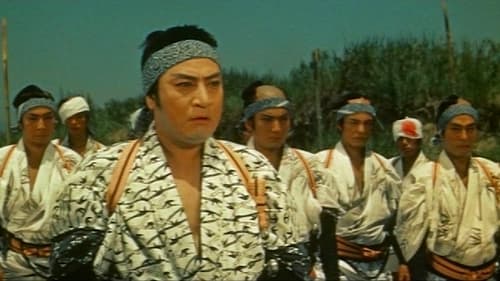
One of the great stories from Japan’s rich history comes to life in this true tale of the bloody showdown between two rival yakuza gangs in the 1840’s. The battle between Boss Sukegoro of Iioka and Boss Shigezo of Sasagawa has been portrayed many times, most notably in the first Zatoichi film, where the blind man befriends the tubercular ronin Hirate Miki, before cutting him down in one of the great duels in cinema history. This all-star extravaganza pulls out all the stops, with appearances by virtually all of the great actors and actresses from Toei’s studio at the time. Ichikawa Utaemon’s portrayal of the kind-hearted, noble yakuza boss Shigezo of Sasagawa contrasts sharply with the devious Sukegoro of Iioka. Corrupt as he may have been, his men were all willing to give up their lives for him.

A young, feisty woman named Osome searches for her true love in the midst of a family crisis.

Koshuya
With flashing swordwork and a terrific story, wandering gambler Kusama Hanjiro inspires the wrath of Boss Jirotaro who has been terrorizing travelers along the route through his territory. When Hanjiro steps in to gamble with him one-on-one it leads to a deadly vendetta that will show no mercy. Along the way Hanjiro is called upon to help sisters with no one else to depend on. Will the feud end in tragedy, or can the honest wanderer prevail against the bloodlust of an angry yakuza boss whom he had scarred for life?

Five swordsmen are murdered and hung from a tree and the chase is on to find the killers. Two magistrates pursue the leads to solve the crime and it leads to a potential conspiracy to kill the Shogun.

An action-packed, dramatic gangster film.

Saotome, a sword master and guard of the Shogunate, pursues the mystery of a deadly aerial weapon that is responsible for the multiple deaths in town.
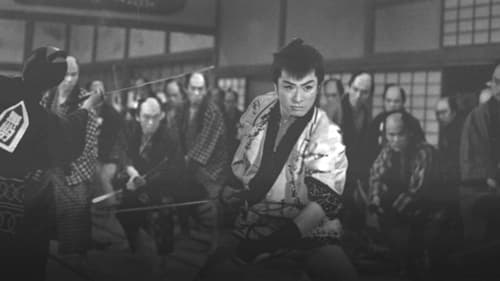
With the help of famous yakuza Jirocho, brave and quick tempered Eijiro takes revenge on the death of his close friend.

A seventh part of the series.

All is not well in an a small fishing village not far from Edo. Mysterious goings-on are happening at Echigoya’s Red Crane Mansion, and when Young Lord comes to relax he finds no peace until he can unravel the mystery rooted in the past when a beautiful samurai princess prayed for a handsome bridegroom to take her away. When a body turns up on the riverbank it is high time for Young Lord to delve into the case, while avoiding dangerous gangsters who have taken over the town. This is the 7th case that Young Lord is called upon to solve. Leaving only the mystery of who he is and where he came from! As always, Okawa Hashizo plays the role to perfection.
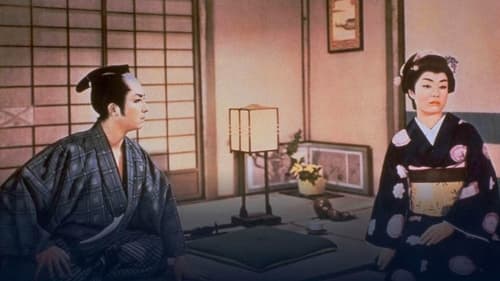
A princess finds life behind the protection of her brother and the high walls of the mansion to be quite dull, so she takes on another identity and lives in a small house in Edo pretending to be a singer but all the while she is actually a Shogunate Detective. Framed by a crooked magistrate for a crime she did not commit, Oshichi must clear her name of false charges after a woman helps to lead a prison break of the notorious Oshu Remnants. Meanwhile the magistrate, Lord Kai, conspires to be rid of her brother, Clan Elder, Lord Abe Iyo. Her only clue is an ornate dagger with a handle made of golden coins.
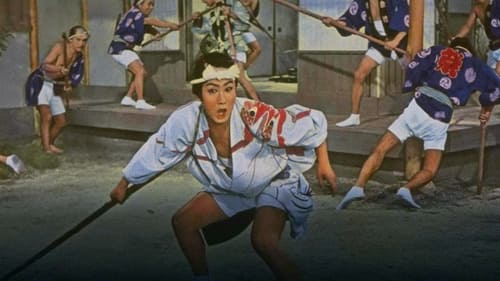
Tasuke stumbles across Kokichi, a distraught man whom having lost his fiancee to Lord Kawakatsu is ready to commit suicide. Tasuke learns that Kokichi's fiancee, Otoyo, was a chambermaid whom Kawakatsu abducted in order to make her his concubine and Tasuke feels compelled to right this wrong. Meanwhile Kawakatsu is dealing in black-market lumber and receiving kick-backs but unbeknownst to him he is under investigation by Lord Izu, one of the Shogun Elders. Will Tasuke be able to rescue Otoyo from the clutches of Lord Kawakatsu and can Lord Izu put an end to his money hungry evildoings.

In the midst of the warring age, a young samurai Kyonosuke defies his former lord Hojo Ujikatsu in order to avenge his parents’ deaths.

Kunisada Chuji is a common folk hero who looks out for poor people in the country who are at the mercy of corrupt officials. Intent on fulfilling a dying wish from one of his henchmen, Asataro, to find a decent home for his young nephew, Chuji descends from his hide-out in the mountain, and heads to the city in spite of numerous dangers that await him there.
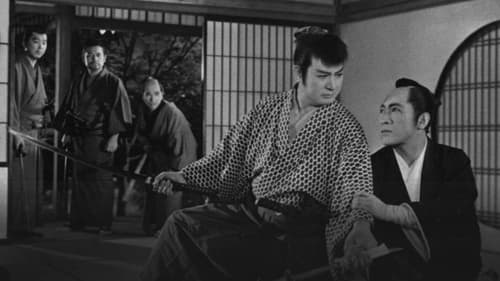
Bright samurai movie innovatively adapted from a classic story. A traveling masterless samurai is asked by a daughter of an established samurai family to pretend they are a married couple, and gets involved in the troubles of the samurai clan.
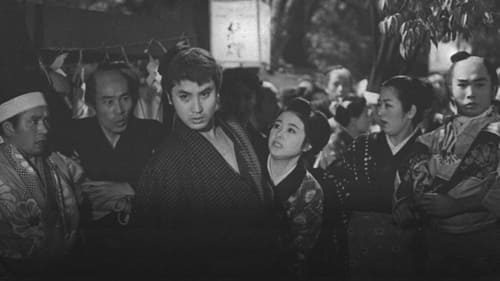
A chance meeting between two traveling gamblers leads to a case of mistaken identity when the farmers transporting gold to the governor think they are about to be robbed as the two gamblers face off against each other swords in hand.

Japanese mystery film.
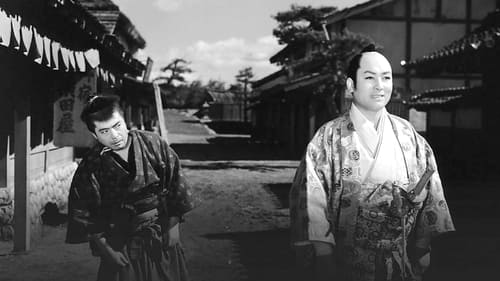
Nagano
Young Lord Gentaro (Otomo Ryutaro) takes a journey to Edo in search of his future wife. Easier said than done, evil forces lurk in Edo and Gentaro must use his phenomenal sword skills to overcome the evil and find the love of his life. Another must have for fans of the great Otomo Ryutaro. And don't let the "silly" English title fool you, this is a great movie!

Toyama Kinshiro, a commissioner from northern Edo, goes undercover to unravel the mystery behind a series of murders. Kinshiro, played by Kataoka Chiezo, is most famous for the cherry blossom tattoos on his shoulder which he reveals at the moment of judgement.

Romantic comedy.
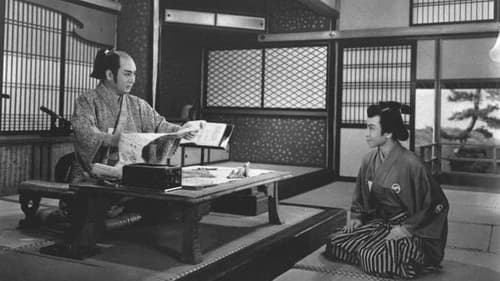
The year is 1805. Napoleon ruled Europe. Ienari is the 11th Tokugawa Shogun. An incident, which was an open official secret, took place on the foothills of Mt. Fuji. Fearing attacks from within and without, the Shogunate planned to build a training castle utilizing the most advanced techniques. Two master castle architects, Sato Kikutaro and Kumai Hakuten, were selected to compete for the honor of building this castle. Lord Mizuno Dewa has even ordered the townspeople to assist both sides with their land surveys and preparations. This leads to fear on the part of farmers that their land will be taken away from them, and sets off a series of events which rock the nation to its very roots. With an all-star cast, this is an important story with relevance to current times. One of Ichikawa Utaemon's finest performances, a true classic!

Hakuten
The year is 1805. Napoleon ruled Europe. Ienari is the 11th Tokugawa Shogun. An incident, which was an open official secret, took place on the foothills of Mt. Fuji. Fearing attacks from within and without, the Shogunate planned to build a training castle utilizing the most advanced techniques. Two master castle architects, Sato Kikutaro and Kumai Hakuten, were selected to compete for the honor of building this castle. Lord Mizuno Dewa has even ordered the townspeople to assist both sides with their land surveys and preparations. This leads to fear on the part of farmers that their land will be taken away from them, and sets off a series of events which rock the nation to its very roots. With an all-star cast, this is an important story with relevance to current times. One of Ichikawa Utaemon's finest performances, a true classic!

The sixth episode of Hashizo Okawa's "Wakasama Samurai" catch series.
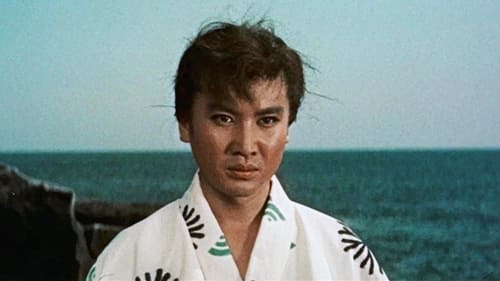
Gorôdayû
As Part I opens, Jubei (Denjiro Okochi), the best of sea skippers, is unable to overcome the stormy seas of Luzon. All hands on board the Kannonmaru were lost except for Shinkei, who alone made his way to land & eventually home to inform his grandson Jiromaru (Kinnosuke Nakamura) that his father Jubei met with disaster. Young Jiromaru tells his grandfather that he doesn't want to be a skipper like his father, but wants to go to Kyoto and become a samurai…

This most celebrated all-star movie version of the popular series features Tsukigata Ryunosuke as Mito Komon, the sage who wanders the countryside rectifying government corruption along with his faithful attendants Suke and Kaku.

Denbei Sagamiya
Chuji Kunisada runs into strange adventures which tests his skill as a samurai as he untangles intrigue and murder against the backdrop of the majestic Mount Akagi.
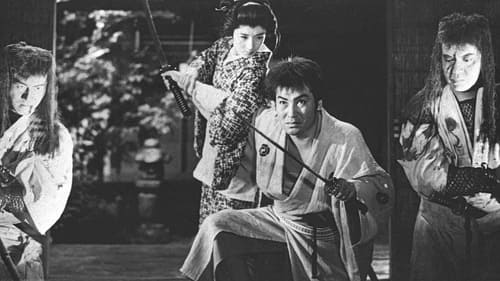
Revenge breeds revenge. Ikuta Denpachiro, the martial arts instructor of the Honda family in Koriyama, lost a fight to the young samurai Enjo Sozaemon in a martial arts tournament and as a result lost his position and was expelled from home. Wanting to avenge the mockery of himself, he treacherously kills Sozaemon and goes on the run. After long wanderings, Denpachiro, it would seem, finds a peaceful life and love in the face of a devoted and courageous Okatsu, but the brothers of the murdered man are already on his trail, wanting to avenge the death of Sozaemon. The film is based on a story by Itaro Yamagami.

In the mist of the warring age (Sengoku Era), the Kyushu based Hayato Clan is faced with a monumental battle to determine their survival.

Period drama directed by Yasushi Sasaki.

Period drama directed by Yasushi Sasaki.
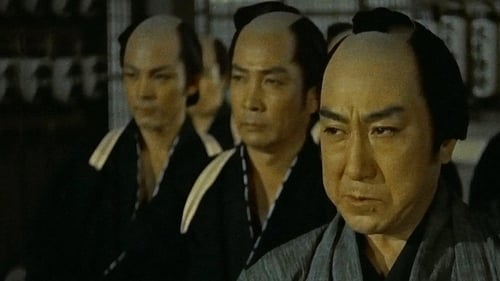
Kyuroku
An all-star cast highlights this Jidai-Geki classic. Set in the samurai era, this is the tale of period Yakuza. One of the real classics in this genre. In this dramatic portrayal of the real-life gambling boss Jirocho, a good-hearted and honest boss sets out to take revenge for a fellow boss. At the same time, the other local bosses, in a bid to increase their own power, plot to dispose of Jirocho. Starring Kataoka Chiezo in one of his signature roles, this is an excellent portrayal of a figure who is not well known outside of Japan. Co-starring Nakamura Kinnosuke, this exciting tale of period yakuza brings history to life.

Film adaption by Kenji Misumi

This 1956 adaptation of the novel with the same title puts more focus on the characters and their interactions than the previous version.
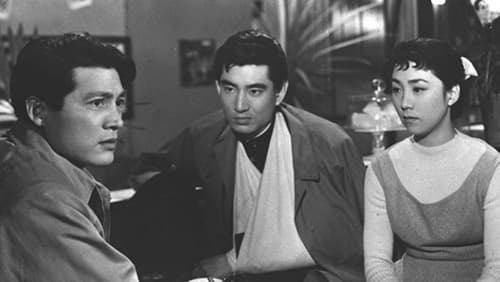
Junpei Kihara, a young president of the University's wrestling club, is nicknamed "Mr. Chop". One day, on the way back from visiting the hospital after being thrown by Nobuyoshi Shinohara during practice and injured, he met Asako, the sister of Arisawa's mother, Katsuko. When they entering a coffee shop run by Asako's best friend Hisako, Hisako misunderstood them as lovers...
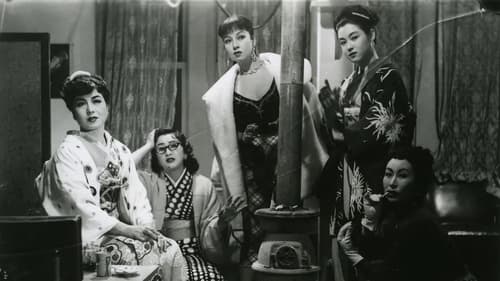
Kurazô Taya
The lives of five prostitutes employed at a Japanese brothel while the nation is debating the passage of an anti-prostitution law.

The story of Yoshinaka during the tumultuous period of warring related to us in the Heike Monogatari. Close in setting to Kinugasa’s famous Gate of Hell (1953).

Heijirô Gondô
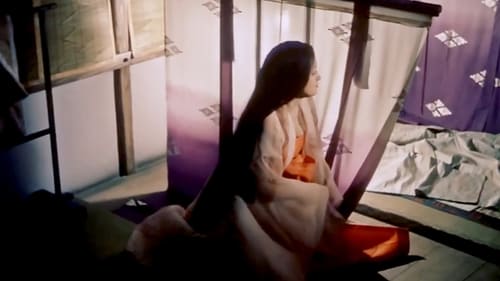
Banboku
Special Forces commander Captain Tadamori returns to Kyoto after successfully defeating the uprising of pirates in the western sea of Japan. But because the high courtiers dislike career soldiers gaining power and influence, they ignore the will of ex-Emperor Toba and refuse to reward the captain. Reward recommender Lord Tokinobu is punished, and the captain sends his son Kiyomori to the Lord's residence, where he falls in love with Tokiko, the Lord's daughter. Meanwhile, Kiyomori finds out that he is possibly the ex-Emperor's son... Written by L.H. Wong
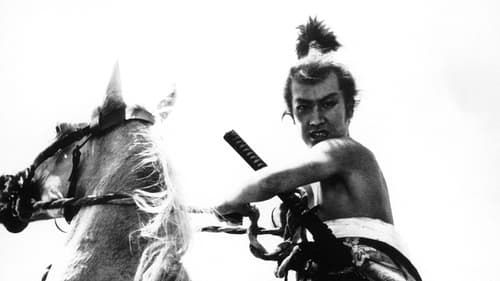
A dynamic story depicting the rise to power of Oda Nobunaga. The story of a young man on the battlefields of the Sengoku era, who possessed character and courage, and who became a great commander and ruler, while some called him a great dictator. A film adaptation of the novel by Sohachi Yamaoka.
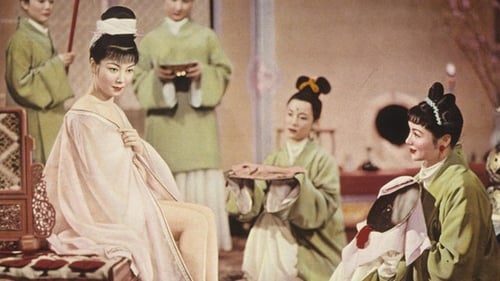
Kao Li-hsi
In eighth century China, the Emperor is grieving over the death of his wife. The Yang family wants to provide the Emperor with a consort so that they may consolidate their influence over the court. General An Lushan finds a distant relative working in their kitchen whom they groom to present to the Emperor. The Emperor falls in love with her and she becomes the Princess Yang Kwei-fei. The Yangs are then appointed important ministers, though An Lushan is not given the court position he covets. The ministers misuse their power so much that there is a popular revolt against the Yangs, fueled by An Lushan.
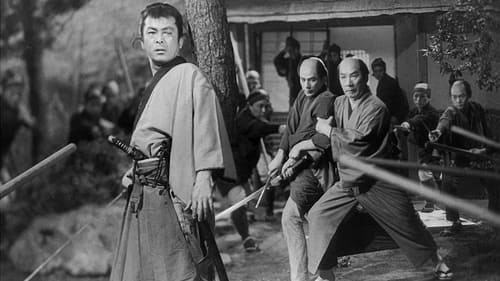
In this movie, Sashichi tries to catch a serial killer who kills his victims with shurikens.
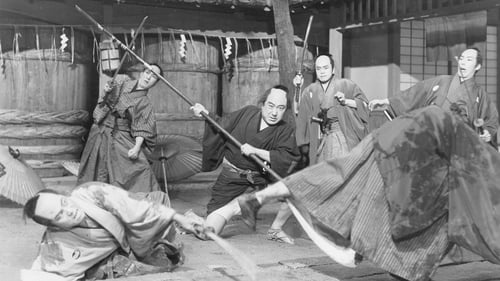
pilgrim
Tragicomic road movie set during the Edo period. It follows a samurai, his two servants – including spear-carrier Genpachi – and the various people they meet on their journey, including a policeman in pursuit of a thief, a young child and a woman who is to be sold into prostitution.

Hamamatsu-ya Kobei
A group of five law enforcers search Edo for a missing sword.
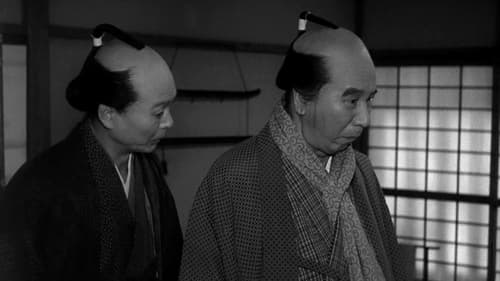
Ishun
In 17th century Kyoto, Osan is married to Ishun, a wealthy miserly scroll-maker. When Osan is falsely accused of having an affair with the best worker, Mohei, the pair flee the city and declare their love for each other. Ishun orders his men to find them, and separate them to avoid public humiliation.

A reporter Takuo, who is sleeping in the newspaper room of the Maichō newspaper company, receives a sudden report from a reporter that the missing Akiyama JNR president was found dead.

Early adaptation of the book "The Inugami Clan", featuring the detective Kōsuke Kindaichi.
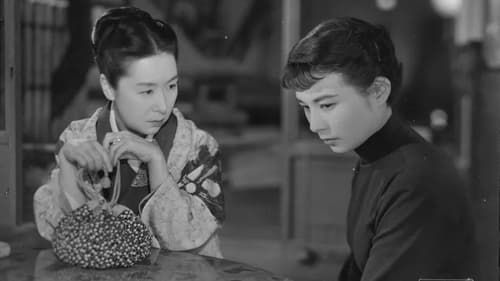
Yasuichi Harada
Yukiko's fiance learns her mother runs a geisha house and ends their engagement. She despises what her mother does until one of her clients shows interest and starts to woo her.
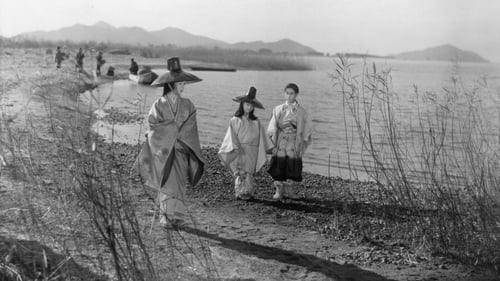
Sanshô dayû
In medieval Japan, a woman and his children journey to find the family's patriarch, who was exiled years before.

Nobuko Otowa won the Blue Ribbon Award for the Best Actress for this among other films.

Adaptation of the Riichi Yokomitsu novel.
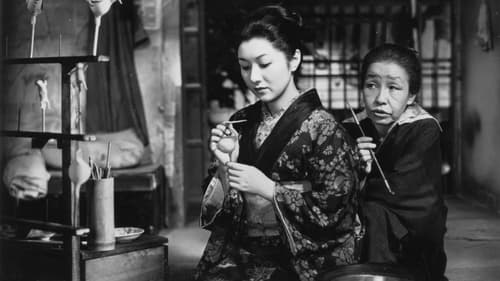
In the post-war Gion district of Kyoto, the geisha Miyoharu agrees to apprentice the 16 year-old Eiko, whose mother was a former geisha who had just died. After a year of training they have to find a large sum of money before Eiko can debut. Miyoharu borrows the money from the tea-house owner, Okimi, who in turn obtains the money from the businessman Kusuda. Kusuda fancies Eiko himself and wants to give Miyoharu to Kanzaki in order to close a large business deal. However both geishas have minds of their own and, going against tradition, want to be able to say no to clients.
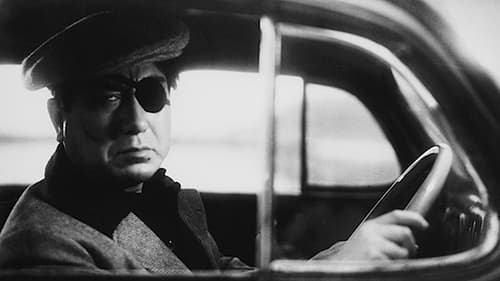
Takayuki Okabe
Fifth delivery in the Tarao Bannai series, following the "master detective with seven faces" who uses his signature disguise to solve crimes with a double-barreled pistol.

The final film in the 1953 trilogy based on the long novel series The Great Bodhisattva Pass.

The second film in the 1953 trilogy based on the long novel series The Great Bodhisattva Pass.

Nobuko Otowa won the Blue Ribbon for the Best Actress for this movie among others.

The first film in the 1953 trilogy based on the long novel series The Great Bodhisattva Pass.

Ginko, a poor cobbler's daughter, becomes a geisha to support her family. She passes from one geisha house to the next, trying to find love and hope in the process. No matter how hard she tries, she just can't escape her sad fate.

Kazuo Miyagawa’s prizewinning black-and-white cinematography draws out the moral shadings of Nobel laureate Yasunari Kawabata’s 1952 novel Thousand Cranes, a quietly devastating story of a young man, orphaned during the war, who stumbles into a passionate yet tragic relationship with his late father’s mistress and her daughter.

Based on the story of Shimizu no Jirocho.

1950s Japanese comedy.

A family of Kyoto textile workers struggles after tragedy.
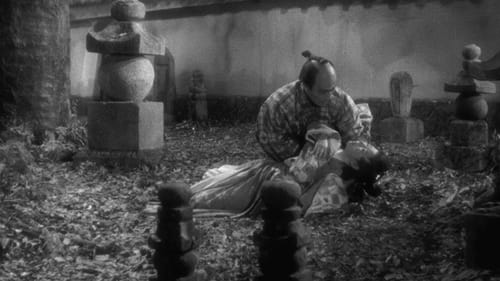
Kahe Sasaya
In Edo Period Japan, a noblewoman's banishment for her love affair with a lowly page signals the beginning of her inexorable fall.

Yoshibei Nakakumaya

Horror film directed by Minoru Inuzuka.

Gensaburo Funaki and Oyuki were childhood friends, but Gensaburo misunderstood that Oyuki was hesitant to get married because he had to feed his father and younger brother. I left the town.
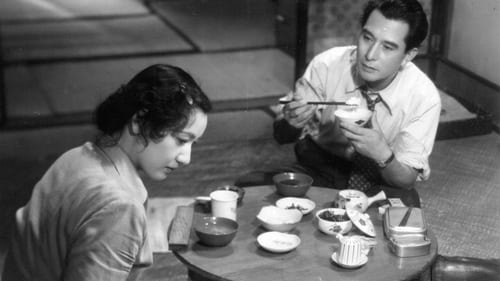
(uncredited)
Michiyo lives in the small place Osaka and is not happy with her marriage, all she does is cook and clean for her husband.
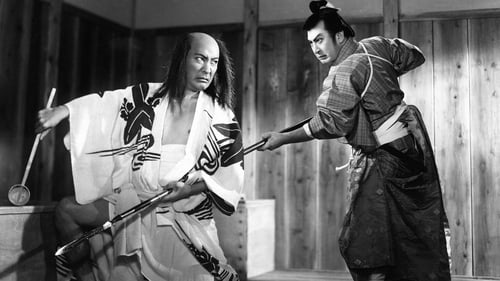
Gonhei
During the 17th Century roving bands of hatamoto were causing trouble in the new capital city of Edo and constantly fought with the townspeople at every turn. The leader of these ruthless samruai was Mizuno Jirozaemon, who despite his high rank was in deep financial distress, thus leading to a tragedy that shook the very streets of the city.Opposing him was Banzui-in Chobei, the ‘Protector of the Weak’ who was willing to put his life on the line to save the 808 districts of Edo from the 80,000 hatamoto whose violent behavior threatened to destroy the fabric of society. Starring Bando Tsumasaburo, the first great star of the silver screen along with mega-star Ichikawa Utaemon, this is a story not to be missed. Torn from the pages of history, this true story has been told many times, but never as powerfully as this!
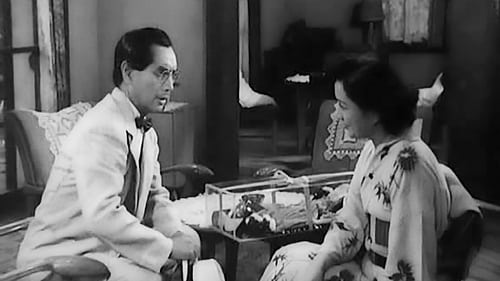
Shinzaburo Miyaji
Set in post-war Japan, The Lady of Musashino tells the story of Michiko, a disillusioned young woman trapped in a loveless marriage. She confides in her younger cousin, Tsutomo, and the two become close, but decide not to consummate their affair. He instead becomes involved with the flirtatious Tomiko, who is also conducting an affair with Michiko's husband. When Michiko finds that her husband has abandoned her, she decides to take her fate into her own hands.

Kusaemon
Shinnosuke is introduced to Shizu as a prospective marriage partner, but he falls in love with her widowed sister Oyu. Convention forbids Oyu to marry because she has to raise her son as the head of her husband's family. Oyu convinces Shinnosuke and Shizu to marry so that she can remain close to Shinnosuke.

Minister of the Right
Genji, the illegitimate offspring of a Japanese potentate, goes by the philosophy of "love 'em and leave 'em" as a matter of course. Only when his heart is broken by Awaji does Genji realizes how much pain he himself has caused.

A Hibari Misora musical about an impoverished girl and her brother in Postwar Japan.

Tokubei

Mondo Tani
Jidai-geki by Nobuo Nakagawa. Most likely a star vehicle for Kanjuro Arashi
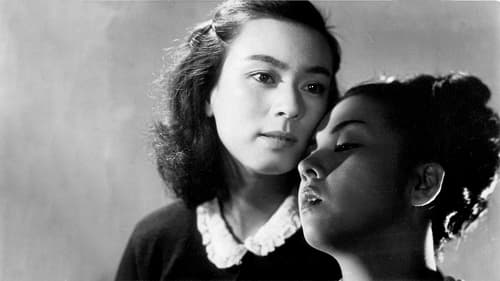
Clothes of Deception initiated Yoshimura’s most characteristic vein. This geisha story is often described as a loose remake of Mizoguchi’s pre-war masterpiece Sisters of Gion (1936), but this is inexact. Whereas in Mizoguchi’s study of two sisters, both women had been geisha, in Yoshimura’s film only Kimicho (Kyo Machiko) is, while her sister works in the Kyoto tourist office. Juxtaposing a traditional Kyoto profession with a modern one, Yoshimura shows how life in the old capital was changing in the wake of wider transformations in Japanese society.

A Japanese melodrama about three sisters, rival fashion companies, and attempted murder by overheated bathroom.

Swordfighting instructor Danpei works at a local theater in Tokyo, instructing the actors how to fight realistically.
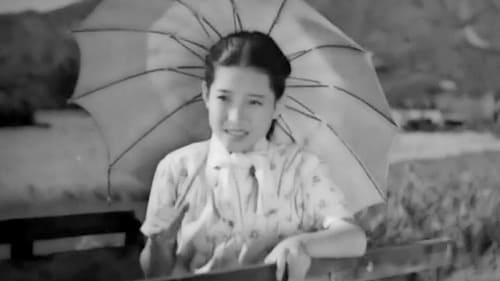
Three humorous love stories set in rural Japan.
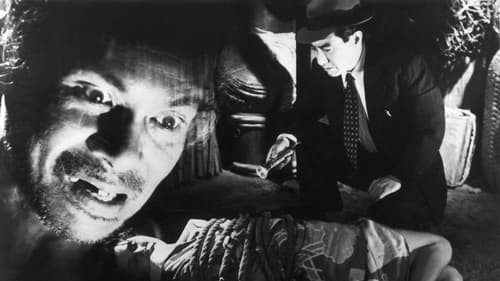
Kihei
Kindaichi challenges the mystery of an incident in which three sisters were killed one after the other according to an ancient tradition on an isolated island in the Seto Inland Sea. Kosuke Kindaichi received a will from his friend Kito, which said, "Go to Gokumon Island to save my three younger sisters," and Kosuke went to Gokumon Island. Upon arriving at the residence of Quito, there were three beautiful sisters, a crazy father, a cousin of Sanae, and Kosuke plunged into a strange atmosphere. The film adaptation of the masterpiece novel of the same name by Seishi Yokomizo. Kyozo Kataoka plays Detective Kosuke Kindaichi, and Ryutaro Otomo plays Inspector Isokawa, who can be called Kindaichi's best partner.

Kyubei
In a village subsisting on it herring fishery, a one-eyed criminal named Jakoman terrorizes the inhabitants. One of them, the son of the head of one of the fish companies by the name of Tetsu, decides to overthrow Jakoman and his cohorts.

Hizakura
Japanese noir.

Fourth film of the Bannai Tarao series starring Chiezo Kataoka
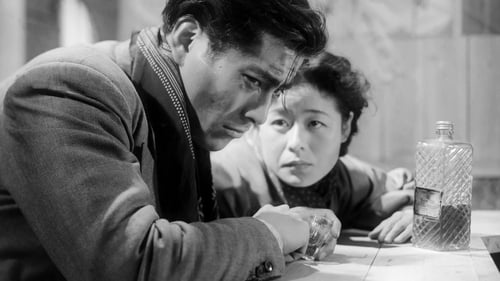
Takahama
Doctor Sanada treats gangster Matsunaga after he is wounded in a gunfight, and discovers that he is suffering from tuberculosis. Sanada tries to convince Matsunaga to stay for treatment, which would drastically change his lifestyle. They form an uneasy friendship until Matsunaga's old boss Okada returns from prison.
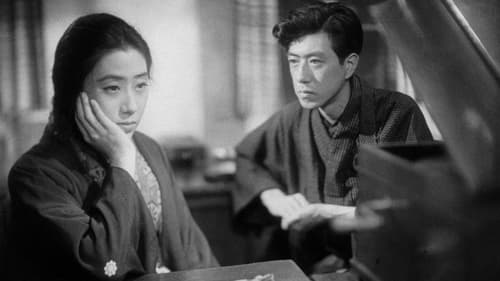
Dr. Okubo
Sumako, a country girl, becomes a great actress with the help of Hogetsu,a scholar who brought some of European realism to the Japan's stage. The relationship leads to the end of his marriage and the breakup of his Arts Society. This is another version of Kenji Mizoguchi's film "The Love of Sumako the Actress" ("Joyû Sumako no koi"), from the same year. Both tells the story of the famous actress Sumako Mitsui (1886-1919), considered the first great modern theater actress in Japan. Mizoguchi himself is said to have preferred Kinugasa's version.

Lord for a Night is a 1946 Japanese film directed by Teinosuke Kinugasa.

Reputedly based on Frank Capra’s 1939 film Mr. Smith Goes to Washington, A Descendant of Tarô Urashima is about a repatriated soldier who becomes populist politician in the Japanese Happiness Party.

Kijin Juzaemon
During the Warring States era, Hozoin Kakuzenbo and Yagyu Tajima-no-kami, being best friends, spend their days acquiring skills of the spear, sword and martial arts. Hozoin loses a series of matches with master swordsman Kozumi Ise-no-kami. Bitterly ashamed, Hozoin embarks on a journey, trying to perfect his skills. A few years later, Hozoin is ready and it's time for the ultimate showdown with Ise-no-kami!
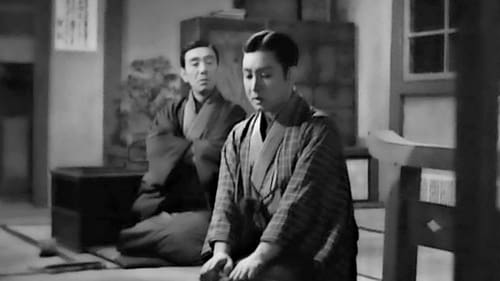
The Way of Drama unfolds in the world of kabuki in Osaka, but also addresses the politics of popular culture and the rivalry between theatrical styles like those used by amateur actors to dramatise contemporary events.

Tatsumi

A sixteen-year-old who had been living on her own since her mother died, frequently gets in trouble with the police. She gets sent to an "institute" for young girls in the countryside. There the residents grow their own food, cook and clean for themselves, and are taught language, music, and sewing. While there the young girl slowly begins to form friendships and come out of her shell.

Director
A 1943 film.

The Opium War is a 1943 black-and-white Japanese film directed by Masahiro Makino. "Ahen senso" in Japan refers to the First Opium War. The story of the film concerns this war.

War-time jidaigeki by Eisuke Takizawa. Didn't find anything about it online, but Takizawa was a well-regarded director in his time. Akira Kurosawa worked as A.D. on several of his films.
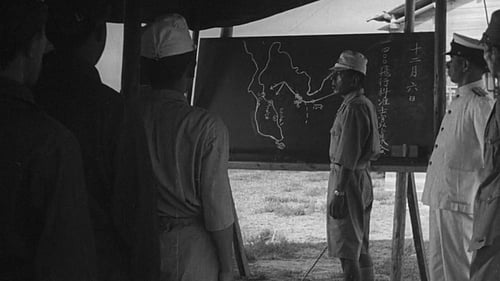
Kurimoto
Japanese Navy air cadets train for the attacks on Pearl Harbor and the HMS Prince of Wales.

The premature death of a young mother serves as inspiration for her husband and son.

Sakata
1942 adaptation of Izumi Kyoka's novel.

Set in Qingdao, China, a Japanese company locates an office there and begins work and cooperation with a local Chinese company for business. Many Japanese engineers also move to China, with their families, for the company in order to construct a canal. There are young Chinese resisting the Japanese in this area.

Man With the Knapsack
What is marriage? Young couple in match-making wanted to know before they decide. They visited married couples of sisters and brothers. Love comedy in 1942.

Samanosuke Karasaki
This epic depicts the battle between Uesugi Kenshin and Takeda Shingen. The focus of the story is the struggle by the unit leader in charge of the main supply wagons and the supply troops to transport materiel to the Uesugi army. To this are added episodes involving an itinerant woman.

Jurobei, a kaisen tonya (wholesaler in port) in Awa, was wronged and killed on the day of the Dance Festival by the evil merchant & the chamberlin. His brother (Kazuo Hasegawa) vowed vengeance on the day of his brother's death. So every year the villains are worried during the Awa Dance Festival (which is part of the Obon festival), but nothing has ever happened, until seven years later...

Feature film.

A Japanese army engineer (Hasegawa) on the mainland must put his personal feelings for a beautiful Chinese woman (Ri) aside if he is to succeed at building a highway through the "bandit"- (aka anti-Japanese militia-) infested hinterlands.

Jidaigeki from 1940

Song of the White Orchid was a co-production of Toho and Mantetsu, the railway that served the colonial region of Manchuria, and the first film in the Kazuo Hasegawa/Shirley Yamaguchi (Ri Koran) “Continental Trilogy.” Handsome Hasegawa (representing Japan) runs up against an impertinent Yamaguchi (representing the continent); not surprisingly, in the course of the film the woman comes around and realizes the benevolent intentions of the Japanese. In Song of the White Orchid Yamaguchi leaves Hasegawa, who plays an expatriate working for the railway, because of a misunderstanding. She joins a communist guerilla group plotting to blow up the Manchurian railway. Learning of the subterfuge that led to the misunderstanding, she renews her faith in Hasegawa—and by extension Japan—and tries to undermine the plot.

Based on the book Heaven and Maiko by Yoshiya Nobuko, it is the story of two girls of different family backgrounds in Osaka.

Japanese war movie

Japanese movie

Maki Chutaro
Japanese film.

Hayase Sake
Prewar jidaigeki starring Denjiro Okochi
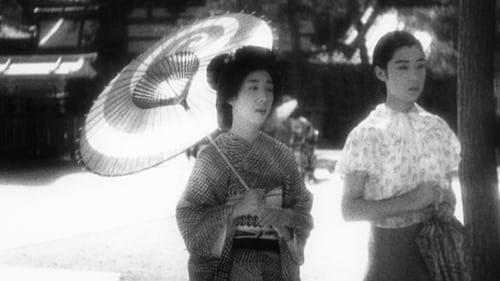
Kudo, the drygoods merchant
Umekichi, a geisha in the Gion district of Kyoto, feels obliged to help her lover Furusawa when he asks to stay with her after becoming bankrupt and leaving his wife. However her younger sister Omocha tells her she is wasting her time and money on a loser. She thinks that they should both find wealthy patrons to support them. Omocha therefore tries various schemes to get rid of Furusawa, and set themselves up with better patrons.
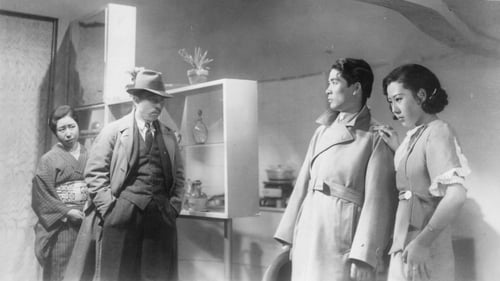
Yoshizo Fujino
Ayako becomes the mistress of her boss so she can pay her father's debt and prevent him from going to prison for embezzlement.









































































































